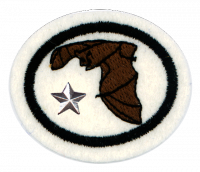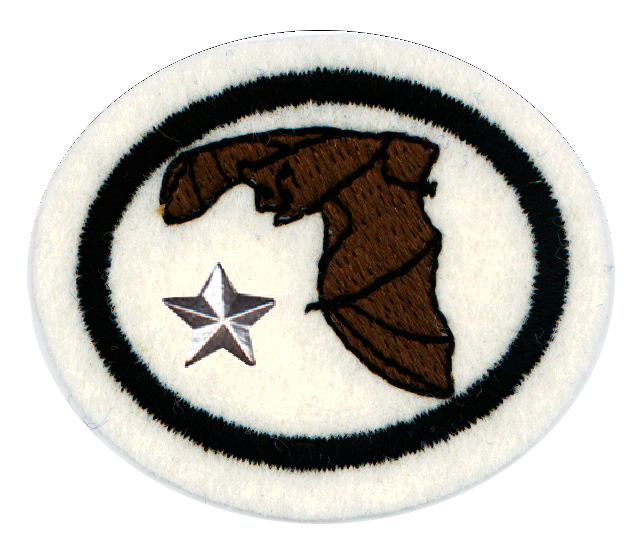Respuestas para la especialidad JA de Murciélagos - Avanzado
Nivel de destreza
2
Año
2004
Version
12.05.2024
Autoridad de aprobación
Asociación General
1
Para consejos e instrucciones, véase Murciélagos.
2
3
4
5
Delayed implantation is a reproductive strategy used by close to 100 different mammals in seven different orders. In delayed implantation, the embryo does not immediately implant in the uterus, but is maintained in a state of dormancy. No development takes place as long as the embryo remains unattached to the uterine lining. As a result, the normal gestation period is extended, sometimes up to a year.
6
The gestation period lasts from 44 days to 8 months.
7
Bat guano is bat droppings (feces). Among bat colonies, thousands of pounds of guano can accumulate. During the American War of 1812 and the American Civil War, bat guano was used to make gunpowder, since the primary component of guano is saltpeter – the primary ingredient in gunpowder.
8
Histoplasmosis, also known as Darling's disease, is a disease caused by the fungus Histoplasma capsulatum. Symptoms of this infection vary greatly, but the disease primarily affects the lungs. Occasionally, other organs are affected; this is called disseminated histoplasmosis, and it can be fatal if untreated. Histoplasmosis is common among AIDS patients because of their lowered immune system.
9
Most bats live longer than most mammals of their size. The longest known lifespan of a bat in the wild is 30 years for a little brown bat.
10
In regions where rabies is endemic, only 0.5% of bats carry the disease. However, of the few cases of rabies reported in the United States every year not caused by dogs, most are caused by bat bites. Those that are rabid may be clumsy, disoriented, and unable to fly, which makes it more likely that they will come into contact with humans. Although one should not have an unreasonable fear of bats, one should avoid handling them or having them in one's living space, as with any wild animal. If a bat is found in living quarters near a child, mentally handicapped person, intoxicated person, sleeping person, or pet, the person or pet should receive immediate medical attention for rabies. Bats have very small teeth and can bite a sleeping person without being felt.
11
Although the eyes of most microbat species are small and poorly developed, leading to poor visual acuity, none of them are blind. Vision is used to navigate microbats especially for long distances when beyond the range of echolocation. It has even been discovered that some species are able to detect ultraviolet light. They also have a high quality sense of smell and hearing. Bats hunt at night to avoid competition with birds, and travel large distances at most 800 km, in their search for food.
12
The Eastern Red Bat is depicted on the honor patch. They are widespread across eastern North America, with additional records in Bermuda. It is also scarce but widespread throughout many of the Bahamian islands.
References
- Pages using DynamicPageList3 parser function
- AY Honors/Prerequisite/Bats/es
- AY Honors/See Also/Bats/es
- Adventist Youth Honors Answer Book
- Adventist Youth Honors Answer Book/Do at home
- Missing Localization/All/Bats Advanced AY Honor.png/es
- Missing Localization/All/Naturalist/en
- Missing Localization/All/Zoology/en


